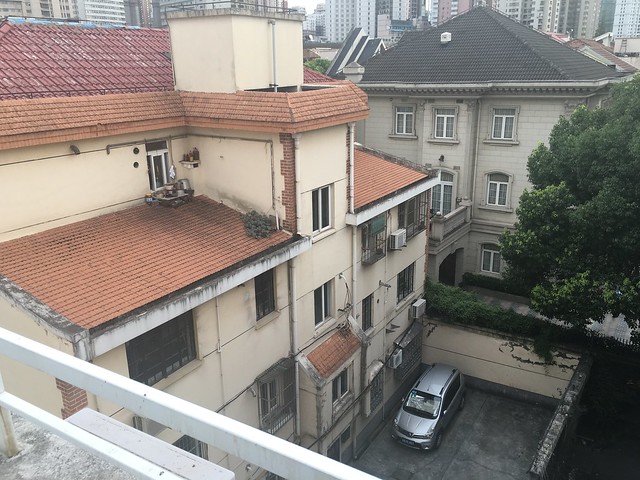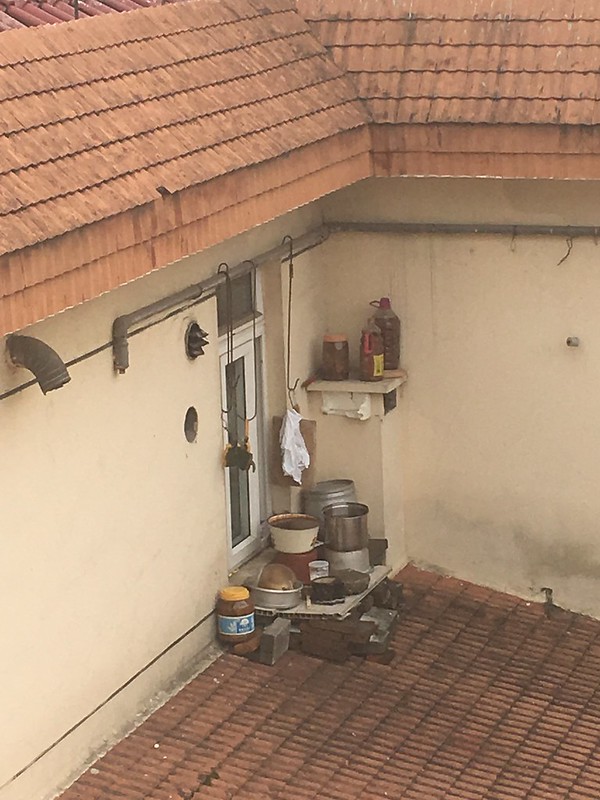The World Is Your Closet
Over the years I’ve noticed some interesting attitudes toward public spaces here in China. One of the most perplexing, from a western perspective, is one where one’s own home is kept as pristine as possible, while public spaces are treated with much less respect. Taken to the extreme, you might even say public spaces are sometimes treated like a dumpster: littering, dumping of liquids, and worse.
What blew my mind about this “public spaces don’t need to be kept clean” (AKA “the world is your dumpster”) attitude was how clearly and finely the line can be drawn. In some cases, I’ve seen apartment residents treat the hallway right outside their own apartments with this kind of total disregard for cleanliness: stacks of garbage, leaky garbage bags, and other jetsam dumped right outside their own apartment doors. (The idea is that it will be disposed of later, either by the resident who dumped it, or by the cleaning staff of the building. In either case, the garbage is kept out of the clean home, and anyone else who has to share the hall just has to deal with it.)
But I’ve also noticed a less common phenomenon that’s kind of the opposite: claiming public spaces for personal use. To use the “public space” of the apartment hallway as an example again, a resident might discover that the building storage closet in the hallway is not normally locked, and then store some of his own (not so valuable) stuff in that closet.
I noticed a pretty weird example (not at all typical, I’m sure) of this “the world is your closet” attitude just behind my Shanghai office building. Take a look at this apartment building:
See the stuff stacked outside the window? Yes, the roof has been turned into a closet.
I’m not sure how well this works, considering how often it rains, but there you have it.



And then there is the rooftop “extra floor”, speaking of claiming public spaces.
As far as litter goes, I think the government really needs to make a campaign against it, similar to the one in the US in the 1970s. When I see people throw toss garbage on the ground I often pick it up and give it back to them, pointing at a garbage can a few meters away, asking them how they could be *that* lazy, and why doesn’t China have any 爱国者? Getting more and more forceful until they start heading to the garbage can.
Interestingly, quite often their reaction is almost instantaneous, actually thanking me for pointing out their mistake — I’ve had both children and oldsters react this way.
In our old apt building, we lived on the top floor and built an extra (illegal) apt on the roof.
This messed up the drainage for the building. When it rained, there was water damage to all 20 floors below, which we had to pay for.
These illegal penthouses are everywhere, by the way.
It works perfectly. The pots and pans are actually there to capture the rain, which you can then see stored in those plastic bottles. The full bottles are then eventually sold to the bottled water companies, who purchase pure and fresh rainwater at a premium.
That’s fairly effective and convenient use of the AC ledge for stashing things!
I suspect I may actually be living in one of those illegal rooftop add-ons right now…especially since my apartment, on the very top floor, has no official number and is not listed on the building’s buzzer system. But it’s so cheap, and I have a rooftop balcony!
I puzzled over the neglect of public space phenomenon for years when I lived in Taiwan, and a question related to this became my PhD thesis.
I had a Chinese teacher who called it “lack of civic pride” (没有公德心), but I thought that was just her embarrassed reaction to a foreigner pointing it out. It seems to be associated with the inside-outside distinction that you see in Chinese culture. The ancient compound house way of living shows a distinct inner-outer pattern. As for relationships, there are 中国人/外国人, 自己人/外人, 家乡人/外地人, 生人/熟人, etc. Strangers on the street are often totally disregarded. It’s common to say that Chinese are collectivist as opposed to individualist, but it’s not a very precise description. Patterns of living and relating suggest that individuals integrate themselves very tightly into groups (e.g., family, work, school) and have a much stronger identification and bond with these groups than do individualists, e.g., Americans.
So does this all relate back to the disregard and trashing of public space? My Chinese teacher was right. What seems to be happening there is the civic identity is too abstract for the primary group-oriented Chinese. Note how Chinese governments often appeal to a sense of national pride; the Mao era was full of this sort of Lei Feng-is-everyone’s-brother kind of thing. I think Taiwan’s government has done a great job of creating a sense of civic pride, and has imported Western anti-pollution sentiment (akin to the 70’s ecology movement mentioned by another poster). So 公德心 can be engendered. I think the people just have to feel a personal investment in it.